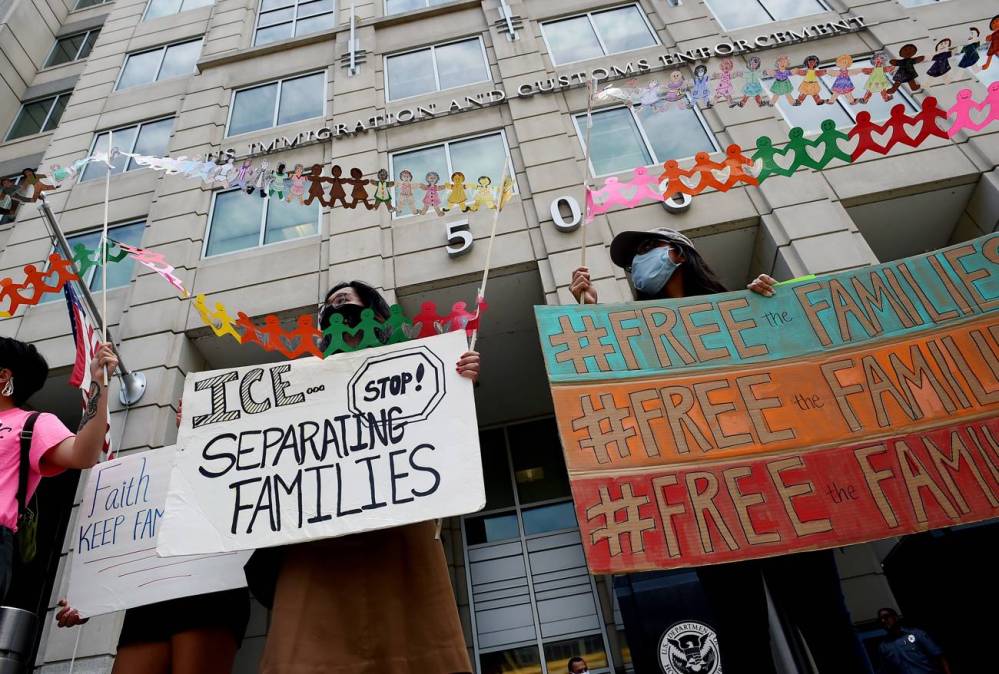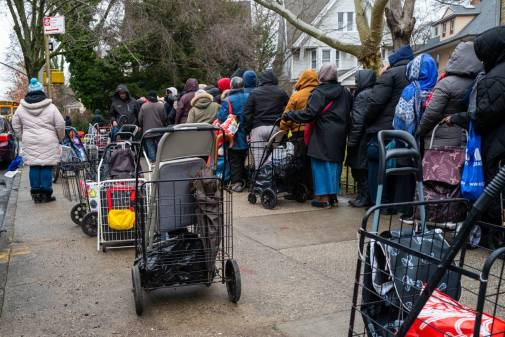Stakes raised on student data privacy as Trump plans greater immigration enforcement

Amid reports that the incoming presidential administration plans to escalate immigration enforcement at what Immigration and Customs Enforcement calls “sensitive locations” — such as churches, hospitals and schools — the nonprofit Center for Democracy and Technology this week published a report evaluating how K-12 schools should navigate upholding student data privacy with legal compliance to authorities.
The report, titled “Education Leaders’ Guide to Complying with Existing Student Privacy and Civil Rights Laws Amidst an Evolving Immigration Landscape,” says shifts in the education data and the technology landscape — along with the imminent changes to immigration enforcement polices promised by President-elect Donald Trump, and state and local leaders — should compel schools to look at their rights and responsibilities when it comes to protecting students’ data and their civil rights. These data and technology shifts, such as the increased adoption of student-facing technology and data collection, could play a big role in the enforcement of immigration policies.
But, there are steps schools can take to ensure students have a safe and fair opportunity to learn, while complying with the law, researchers wrote.
Though federal law generally prohibits schools from disclosing protected information about students, including their immigration status, there are scenarios in which schools must share high-level information about immigration statuses for compliance with federal requirements for funding purposes. These include collecting aggregate data for the U.S. Department of Education’s EDFacts Initiative, and for applications to the Immigrant Children and Youth Enrollment Grant, which funds education improvements for English learners and immigrant students.
While undocumented, school-aged children are entitled under the Constitution to the same free public education as other students, 17% of teachers reported their schools shared student information with immigration authorities in the past school year, the report said. Researchers estimated that figure will increase as the number non-U.S. citizens enrolled in public K-12 schools rises. Teachers in urban school districts were more likely to report data directly to ICE, according to CDT.
“It is against this data collection and sharing backdrop that schools have adopted technology systems that monitor students’ activity and restrict access to information, which could intersect with immigration enforcement efforts,” the report reads, noting two pieces of software that the majority of schools now use: student activity monitoring software, and content filtering and blocking software. Researchers said that if the data from those systems are shared with immigration enforcement authorities, it could infringe on their civil rights.
To protect students, the report urges schools to review their policies, and make updates where needed, such as by ensuring student emergency contact information is current; reviewing and updating directory information policies to protect students’ sensitive data; and establishing clear communication processes for responding to immigration enforcement requests.
Additionally, to ensure technologies — such as student activity monitoring software and content filtering and blocking software — do not violate civil rights, the report says schools should exercise caution in responding to monitoring alerts or notices of blocked content. Schools should also avoid escalating alerts to law enforcement without fully investigating themselves, as this could have immigration consequences, “even if further review by the education agency later reveals the alert to be innocuous,” the report says.
“As the education sector navigates old problems and new, schools must comply with constitutional, statutory, and administrative mandates to ensure that all students are afforded the safe and fair opportunity to learn,” the report says. “Norms, not prohibitions, have long permitted schools to be neutral territories regarding the immigration system. As culture, policy, and governance in the United States shift, norms are likely to change. However, no matter how much norms change, schools still must abide by their existing legal obligations to protect students’ privacy and their civil rights.”






